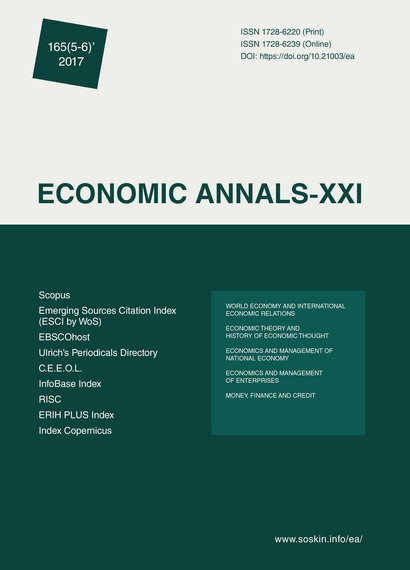Innovative methods of managing consumer behaviour in the economy of impressions, or the experience economy
Innovative methods of managing consumer behaviour in the economy of impressions, or the experience economy
Author(s): Oleksandr Pushkar, Yuliia Kurbatova, Olena DruhovaSubject(s): Economy, Marketing / Advertising, Socio-Economic Research
Published by: Institute of Society Transformation
Keywords: Impressions; Experience; Economy of Impressions; Experience Economy; Personalisation; Theory of Human Biological Cycles; Management; Emotional and Intellectual Content;
Summary/Abstract: In the conditions of digital marketing development, the main problem of the development of enterprise business is management of consumer behaviour in the online environment. Enterprises should find new ways to attract and retain the attention of users. The purpose of the article is to develop recommendations for managing consumer behaviour in the economy of impressions, or the experience economy based on personalisation. The following research methods are used: analysis and synthesis, logical generalisation, abstract logic and the hypothetic-deductive method. The article formulates a hypothesis based on the phenomenon of the dependence of a person’s emotional response on the phase of his/her biological rhythm already in use in the practice of communication management and psychology. To partially confirm the hypothesis, a pilot experiment was prepared and conducted on the basis of the social network Facebook in 2017. The respondents were presented with an advertising multimedia product with a subsequent assessment of the emotional state. The received statistical results confirm the accepted hypothesis. Based on the hypothetic-deductive method, recommendations for managing consumer behaviour in the economy of impressions have been developed. The essence of recommendations is reduced to how to take into account the phases of human biological rhythms, as well as the choice of intellectual and emotional filling of the multimedia advertising product. Taking into account the personalisation processes, the models of users’ perception of advertising are modified. The process of users’ perception of the content, its impressions and emotions lie in interrelation with its biological rhythms. If the developer knows the data about the activity of the emotional and intellectual biorhythms of the user, it becomes possible to control impressions, passing the relevant content in the most favourable periods for perception. Practical application of the proposed recommendations will be useful for companies that carry out advertising activities in social networks that implement contextual advertising and direct marketing.
Journal: Економічний часопис - ХХІ
- Issue Year: 165/2017
- Issue No: 5-6
- Page Range: 114-118
- Page Count: 5
- Language: English

